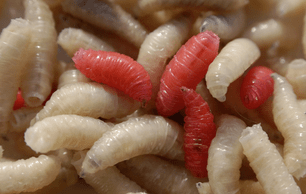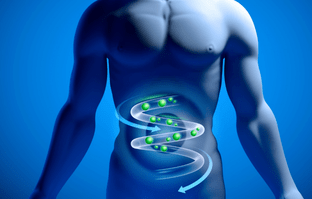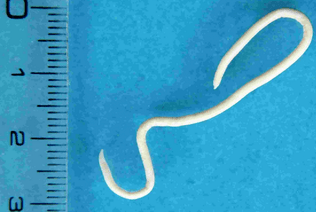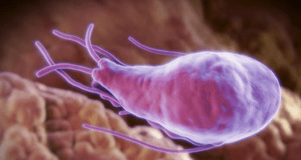It is difficult for an ordinary person to imagine how many parasites can pose a threat to his health. These "settlers" can live in the human body for years, literally absorb life from it and be poisoned by their poison.
Types of parasites

In terms of medicine, parasites include monocytes and protozoa. According to their habitat, they are divided into exoparasites (lice, bugs, etc. ) and endoparasites.
Endoparasites have their own subspecies:
- Insect larval larvae.
- Protozova (Amoeba, Lamblia).
- helminths (worms or worms).
Infectious Ways
Each parasite has its own way of penetrating the human body. The most common way is alimentary, i. e. with the help of water or food. Many insects can move the parasite larvae, which pollutes the environment. By consuming raw water, washed and well-produced food, a person becomes infected with parasites.
Some species are transmitted directly through personal contact - this path is called contact household. Infection does not require direct contact with the distributor, it is sufficient to use household items. This is how enterobiosis and other parasitic forms are transmitted.
Infectious pathway caused by equally popular vectors. In this case the parasites are carried by blood-sucking insects. Thus, they can be obtained after being bitten by a mosquito or other insect.
The last path of parasites is the subcutaneous pathway, the second name is active. Infection occurs through the mucous membranes and skin. This occurs due to contact with contaminated soil or water in the water body.
Symptoms
Parasites in the human body can live long and do not show up. The symptoms, of course, will be, but they are disguised as other diseases. That is why a person may not know for a long time that he is infected.

Symptoms most often occur depending on the location of the larvae, but the body can show infection and other manifestations. The most common are:
- Flatulence,and persistent, indicates the presence of worms in the small intestine;
- Diarrhea.is caused by the absorption of sodium chloride by parasites;
- Constipation.entanglement of worms can lead to blockage of some organs;
- Pain in joints and muscles.These pains are caused by the migration of larvae through the human body, to which the immune system responds in this way;
- Allergy.The parasites themselves are allergens to the body and damage to the stomach walls promotes digestion and the entry of food molecules into the bloodstream; Appearance of
- granulomas.It is a kind of neoplasm that arises by the overgrowth of the parasite's destroyed eggs in the body cells;
- Dermatological manifestations;
- Anemia.Often people experience anemia precisely because of the activity of parasitic forms;
- sharp fluctuations in weight;
- Mental disorders.In the process of vital activity, parasites secrete toxins that negatively affect the host nervous system. The result of body poisoning can be neurosis, depression, anxiety;
- Bruxism.This is brushing your teeth during sleep. It is the response of the nervous system to the appearance of foreign bodies. But this fact is not conclusively proven by science;
- Sleep disturbance.This is usually due to uncomfortable sensations. An example of this is their pinworms, which lay eggs at night. Leaving the rectum, the coriander secrete a toxin that causes severe itching;
- dysbacteriosis;
- oncological diseases;
- Chronic fatigue.occurs due to lack of nutrients, which negatively affects the condition of the body;
- Respiratory diseases.A number of parasites can live in the respiratory tract, causing disease. Other parasites provoke colds by moving the respiratory system;
- Immune disorders. Absorption of most vitamins by parasites weakens the body's barrier functions and increases the likelihood of disease recurrence.
But there are symptoms that are characteristic of the presence of parasites in a particular human organ. For example, papilloma, the appearance of bald spots on the hair, cracked heels, etc. Sh. , May indicate parasites in the liver. In addition, the presence of certain types of parasitic forms can provoke certain types of disease in humans.
Detection of disease

Unfortunately, some doctors refuse their duties and do not send people for special examinations to detect parasites in the body. The most common test is the delivery of feces to worm eggs. The fact is that parasites can inhabit different organs.
There have been cases where worms have been found in the human brain and eyes. Is it likely that the eggs from their brain will pass into the feces? probably not. Even if there are worms in the intestines, the eggs of the parasites may not be found.
The doctor should first conduct a visual examination of the patient. Externally, the presence of human parasites may be suspected. The easiest way to detect them is with a blood test, which aims to detect special antibodies to the worms.
Description of human parasites
There are several dozen types of parasites in the human body.
Worms or helminths are a type of worm.Their size depends on the species, for example, female worms reach 40 cm. Some species can grow up to 10 meters. The intestines are a favorite habitat of worms, but they are often found in other organs, even the brain.
Examples are often found in the respiratory organs. The presence of ascaris in the human body is accompanied by dysfunction of internal organs, intoxication of the body, allergic manifestations and even an increase in temperature.
Among tapeworms is a pig plate that migrates through the bloodstream to the brain. This parasite enters the body through poorly processed meat products. This worm lives up to 20 years.
This parasite enters the body through poorly processed meat products. This worm lives up to 20 years.
Pinworms most often develop in children, but are quite common in adults. These worms are small, reaching 1 cm in length. Pinworm egg spread occurs through household contact. The female emerges from the rectum and lays eggs in the outer folds of the anus. The toxin released by the female causes severe itching, causing the eggs to fall on the human hands and transfer them to all nearby objects.
Another name for enterobiosis is dirty hand disease. All people who come into contact with the carrier are probably infected. Therefore, when pinworms are found, it is recommended to treat the whole family.
Toxocarais a species of parasite that lives in dogs. They enter the human body and also develop well in it. Unlike these worms in the dog body, human toxocariums do not come out, but they affect many organs and cause certain diseases. Toxocars can be transmitted through the soil as the larvae of these worms come out with the dog feces. Also parasite eggs can be spread from a dog's wet breath.
Alveococci and echinococciinfect the body in many ways. Their danger lies in the fact that the larvae transform into cysts that are found in various internal organs.
Giardia is the simplest.Like Pinworms, Giardia is the most common infection in children. They not only reduce a child's immunity, but also provoke a delay in the mental and physical development of children.
They not only reduce a child's immunity, but also provoke a delay in the mental and physical development of children.
This list is complete. The main danger of parasites is that no one is insured against infection. Their secret leads to the fact that humans have been feeding on parasites for years, without a doubt. Maintaining personal hygiene, constant wet cleaning of the dwelling and adhering to the norms of heat treatment of meat products are not bad prevention of infection. To prevent the spread of parasites, it will be useful to see a doctor and undergo the necessary tests within six months.

















































